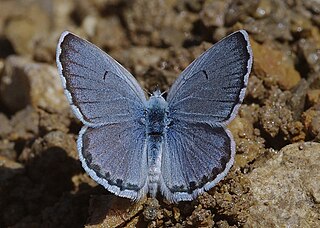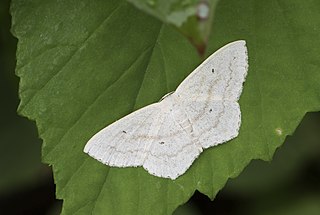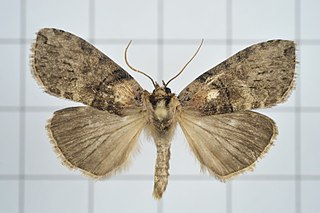Related Research Articles
Sir George Francis Hampson, 10th Baronet was an English entomologist.

Pseudophilotes vicrama, the eastern baton blue, is a small butterfly found from Asia, east to Tian Shan and parts of China, west to the Balkans, Turkey, eastern Europe to southern Finland. It belongs to the lycaenids or blues family.

Urodidae or "false burnet moths" is a family of moths in the lepidopteran order, representing its own superfamily, Urodoidea, with three genera, one of which, Wockia, occurs in Europe.
Agathiphaga is a genus of moths in the family Agathiphagidae, known as kauri moths. This caddisfly-like lineage of primitive moths was first reported by Lionel Jack Dumbleton in 1952, as a new genus of Micropterigidae.

George Talbot FES was an English entomologist who specialised in butterflies. He wrote about 150 scientific papers, the majority being primarily systematic, consisting of the description of new species or the revision of various genera. He was also responsible for the curation and preservation of the Joicey collection of Lepidoptera prior to its accession by the Natural History Museum.

The Thyatirinae, or false owlet moths, are a subfamily of the moth family Drepanidae with about 200 species described. Until recently, most classifications treated this group as a separate family called Thyatiridae.
Zebeeba is a monotypic moth genus in the family Erebidae erected by William Forsell Kirby in 1892. Its only species, Zebeeba falsalis, was first described by Gottlieb August Wilhelm Herrich-Schäffer in 1839. It is found in northern Africa, southern Europe, Asia Minor and the Levant.

Scopula flaccidaria is a moth of the family Geometridae. It was described by Zeller in 1852. It is found in the Asia Minor, Russia and south-eastern Europe.
Pseudaclytia bambusana is a moth in the subfamily Arctiinae. It was described by Schaus in 1938. It is found on Cuba.
Pseudaclytia major is a moth in the subfamily Arctiinae. It was described by Herbert Druce in 1906. It is found in Peru.
Pseudaclytia opponens is a moth in the subfamily Arctiinae. It was described by Francis Walker in 1864. It is found in Tefé, Brazil.
Pseudaclytia popayanum is a moth in the subfamily Arctiinae. It was described by Paul Dognin in 1902. It is found in Colombia.
Pseudaclytia pseudodelphire is a moth in the subfamily Arctiinae. It was described by Rothschild in 1912. It is found in Venezuela.
Pseudaclytia umbrica is a moth in the subfamily Arctiinae. It was described by Herbert Druce in 1898. It is found in Brazil.
Pseudaclytia unimacula is a moth in the subfamily Arctiinae. It was described by Schaus in 1905. It is found in French Guiana.
Schistophleps minor is a moth in the subfamily Arctiinae. It was described by Roepke in 1946. It is found on Sulawesi.
Bedellia minor, the Florida morning-glory leafminer moth, is a moth in the family Bedelliidae. It is found in Florida in the United States and on Cuba.

Horipsestis aenea is a moth in the family Drepanidae. It was described by Wileman in 1911. It is found in Taiwan, the Chinese provinces of Henan, Shaanxi, Gansu, Hubei, Jiangxi, Hunan, Fujian, Guangxi, Hainan, Sichuan and Yunnan and in Vietnam.
References
- ↑ Beccaloni, G.; Scoble, M.; Kitching, I.; Simonsen, T.; Robinson, G.; Pitkin, B.; Hine, A.; Lyal, C., eds. (2003). "Pseudaclytia minor". The Global Lepidoptera Names Index . Natural History Museum . Retrieved May 12, 2018.
| This Arctiinae-related article is a stub. You can help Wikipedia by expanding it. |